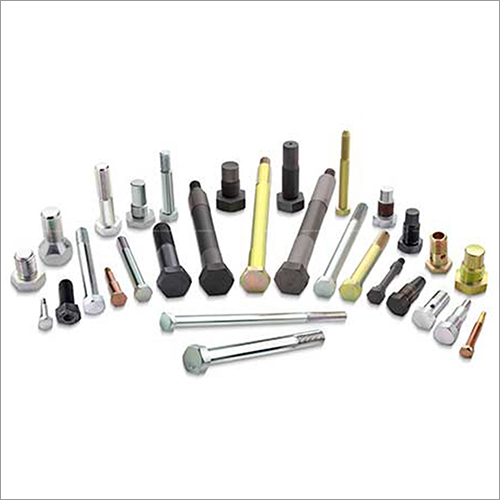
High Tensile Hex Bolts
100-1000 INR/Unit
Product Details:
- Product Type High Tensile Hex Bolts
- Usage Industrial, Automobile
- Material Stainless Steel
- Click to view more
X
High Tensile Hex Bolts Price And Quantity
- 500 Unit
- 100-1000 INR/Unit
High Tensile Hex Bolts Product Specifications
- Stainless Steel
- Industrial, Automobile
- High Tensile Hex Bolts
High Tensile Hex Bolts Trade Information
- 10000 Unit Per Day
- 1 Week
- All India
Product Description
Due to devotion and dedication towards the quality, we are offering a unique range of High Tensile Hex Bolts. These are constructed in a high quality of materials to enable good mechanical properties. These bolts reduce the strength of high-strength bolts. These bolts are used to make a bolted joint and to tighten the grip between the flange. Provided bolts are able to secure heavy loads in highway structures, bridges, etc.
Uses of High Tensile Hex Bolt:
High tensile hex bolts, often referred to as high-strength bolts or structural bolts, are designed to provide strong and reliable fastening in various applications. These bolts are made from materials with high tensile strength and are used in situations where regular bolts might not provide the required level of strength or durability. Here are some common uses of high tensile hex bolts:
1. Construction and Structural Engineering: High tensile hex bolts are commonly used in the construction of buildings, bridges, and other structures. They provide the necessary strength and load-bearing capacity to ensure the structural integrity of these projects.
2. Automotive Industry: These bolts are used in the automotive industry to secure critical components such as engine parts, suspension systems, and chassis components.
3. Machinery and Equipment: High tensile hex bolts are used in heavy machinery and equipment, including industrial machines, agricultural equipment, and manufacturing machinery. They help ensure that these machines can withstand high levels of stress and vibration.
4. Aerospace and Aviation: In the aerospace industry, high tensile hex bolts are used in aircraft construction and maintenance. They must meet stringent safety and performance standards to ensure the safety of passengers and crew.
5. Marine Applications: In marine environments, where corrosion resistance and high strength are crucial, these bolts are used to fasten components on ships, oil rigs, and other offshore structures.
6. Oil and Gas Industry: High tensile hex bolts are used in the oil and gas industry for securing pipeline components, wellheads, and other critical infrastructure.
7. Mining: The mining industry often uses high tensile hex bolts to secure equipment and support structures in challenging and rugged environments.
8. Renewable Energy: These bolts are employed in wind turbines, solar panel installations, and other renewable energy projects, where they help secure large and heavy components.
9. Rail Transportation: In the rail industry, high tensile hex bolts are used to connect rail tracks and fasten various components on trains and railway infrastructure.
10. Defense and Military: Military equipment and vehicles rely on high-strength fasteners to ensure their structural integrity and reliability in demanding conditions.
11. High-Performance Sports Equipment: Some sports equipment, such as bicycles and motorcycles, use high tensile hex bolts to enhance strength and safety.
12. Earthquake-Resistant Building Construction: In regions prone to earthquakes, high tensile hex bolts are used in specialized construction techniques to improve a building's ability to withstand seismic forces.
13. Bridge and Highway Construction: Bridges and highways require sturdy fasteners to ensure the safety of vehicles and pedestrians, and high tensile hex bolts play a vital role in this regard.
14. Offshore and Subsea Applications: In underwater and offshore environments, where corrosion resistance and high tensile strength are essential, these bolts are used to fasten components in subsea infrastructure.
It's important to select the appropriate grade and size of high tensile hex bolt for a specific application, as the strength requirements and environmental conditions may vary widely. These bolts are typically marked with a grade, such as Grade 8.8 or Grade 10.9, which indicates their strength and material properties. Proper installation and torque specifications are also crucial to ensure that high tensile hex bolts perform as intended.
Advantages of High Tensile Hex Bolt:
High tensile hex bolts offer several advantages over standard bolts and fasteners, making them a preferred choice for various applications where strength, durability, and reliability are crucial. Here are some of the key advantages of high tensile hex bolts:
1. Exceptional Strength: High tensile hex bolts are manufactured from materials with high tensile strength, such as alloy steel or stainless steel. This gives them the ability to withstand heavy loads, high levels of tension, and shear forces.
2. Enhanced Reliability: These bolts are designed to provide reliable and long-lasting fastening, reducing the likelihood of loosening or failure over time, even in high-stress environments.
3. Safety: In critical applications like construction, aerospace, and automotive industries, safety is paramount. High tensile hex bolts ensure that components remain securely fastened, reducing the risk of accidents or structural failures.
4. Resistance to Shear and Tension: High tensile hex bolts are well-suited to applications that involve shear and tension forces, as they can distribute and handle these forces effectively.
5. Corrosion Resistance: Many high tensile hex bolts are available in corrosion-resistant materials, such as stainless steel or galvanized steel, making them suitable for outdoor and marine applications.
6. Wide Range of Sizes and Grades: High tensile hex bolts come in various sizes and grades to accommodate different load and strength requirements. This versatility makes them adaptable to a wide array of applications.
7. Easy to Install: Hex bolts have a standard hexagonal head design, which provides a more secure grip during installation. This makes them easier to handle and torque correctly.
8. Standardized Design: The hexagonal shape of the head allows for the use of common wrenches or socket sets, making them easy to install and replace when needed.
9. Widely Available: High tensile hex bolts are readily available at hardware stores and industrial suppliers, making them accessible for a wide range of applications.
10. Versatile Applications: These bolts are used in various industries, from construction and manufacturing to automotive and aerospace, showcasing their versatility and adaptability.
11. Meets Industry Standards: High tensile hex bolts often conform to industry standards and specifications, ensuring that they meet the requirements of specific applications and safety regulations.
12. Reduced Maintenance: Due to their durability and reliability, high tensile hex bolts typically require less maintenance and replacement compared to lower-grade fasteners.
13. Cost-Effective: While high tensile hex bolts may have a higher initial cost compared to standard bolts, their longer service life and reduced maintenance needs can result in cost savings over time.
FAQ of High Tensile Hex Bolt:
Q. What is a high tensile hex bolt?
Ans: A high tensile hex bolt is a type of fastener used to join two or more components together. It is designed to provide high tensile strength and is often made from materials like steel or alloy steel to withstand heavy loads and tension.
Q. What is the difference between a high tensile hex bolt and a regular bolt?
Ans: The primary difference is in the material and strength. High tensile hex bolts are made from materials with higher tensile strength, which allows them to withstand greater loads and tension compared to regular bolts. They are typically used in applications where strength and reliability are crucial.
Q. How is the tensile strength of a hex bolt determined?
Ans: Tensile strength is determined through testing in a controlled environment. It involves subjecting a sample bolt to a gradual and known force until it breaks. The point at which it breaks indicates its tensile strength, usually measured in pounds per square inch (PSI) or megapascals (MPa).
Q. What is the most common material for high tensile hex bolts?
Ans: Steel and alloy steel are the most common materials used for high tensile hex bolts. The specific alloy and heat treatment processes can vary to achieve different levels of tensile strength.
Q. What are the different grades of high tensile hex bolts?
Ans: High tensile hex bolts are often categorized by their grade, which indicates their tensile strength. Common grades include Grade 8, Grade 10.9, and Grade 12.9, with Grade 12.9 being one of the highest tensile strength grades.
Q. What are the applications of high tensile hex bolts?
Ans: High tensile hex bolts are used in various industries and applications, including construction, automotive, machinery, and aerospace. They are commonly used in situations where structural integrity and load-bearing capacity are essential.
Q. How do I choose the right high tensile hex bolt for my application?
Ans: To select the appropriate high tensile hex bolt, consider factors such as the required tensile strength, the material being fastened, the environment (corrosive or non-corrosive), and any specific industry standards or regulations.
Q. Can high tensile hex bolts be reused?
Ans: It's generally not recommended to reuse high tensile hex bolts, especially in critical applications, as they may have undergone deformation or stress during their previous use. Reusing them can compromise their integrity.
Q. What is the proper way to store high tensile hex bolts?
Ans: High tensile hex bolts should be stored in a cool, dry place to prevent rust and corrosion. It's a good practice to keep them in labeled containers to differentiate between different sizes and grades.
Q. Are high tensile hex bolts interchangeable with other types of bolts?
Ans: High tensile hex bolts are not interchangeable with regular or low-strength bolts due to their superior strength. It's essential to use the correct type of bolt for the intended application to ensure safety and reliability.
Enter Buying Requirement Details
 English
English Spanish
Spanish French
French German
German Italian
Italian Chinese (Simplified)
Chinese (Simplified) Japanese
Japanese Korean
Korean Arabic
Arabic Portuguese
Portuguese
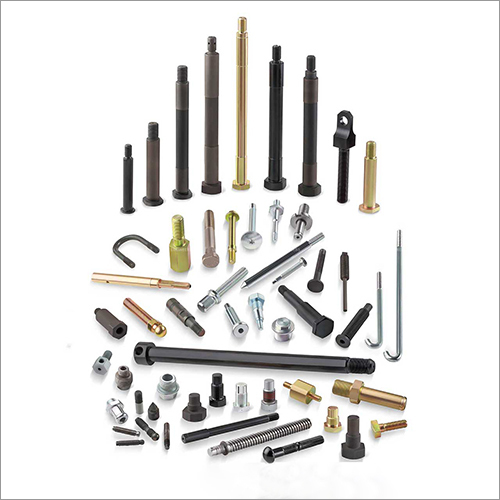
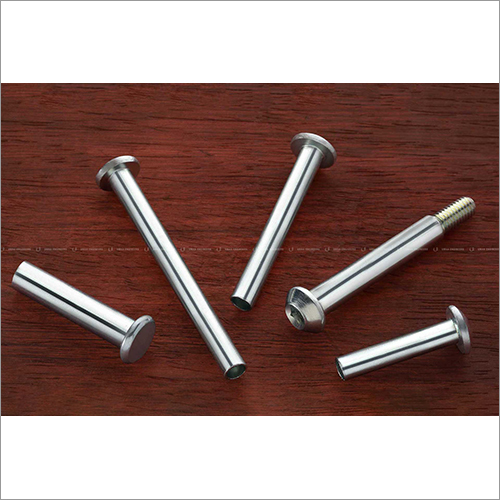
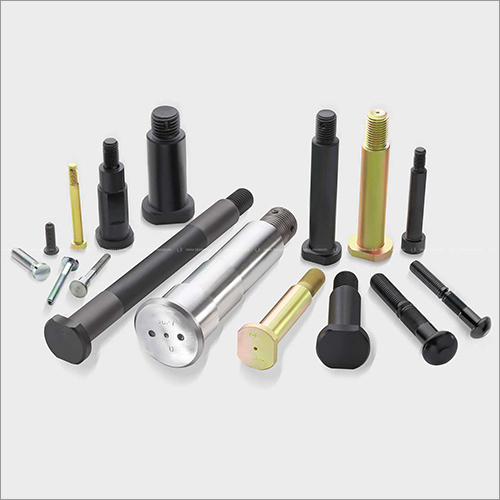
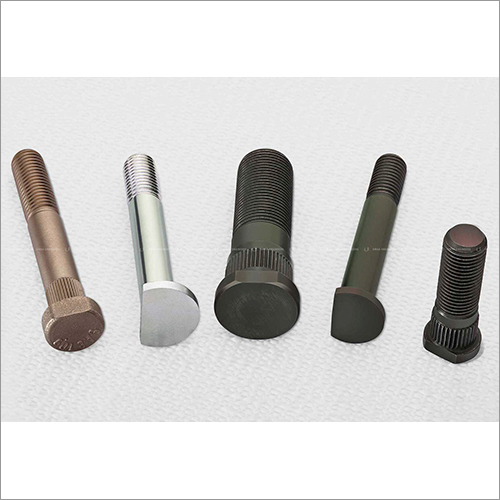
 Send Inquiry
Send Inquiry Send SMS
Send SMS Call Me Free
Call Me Free